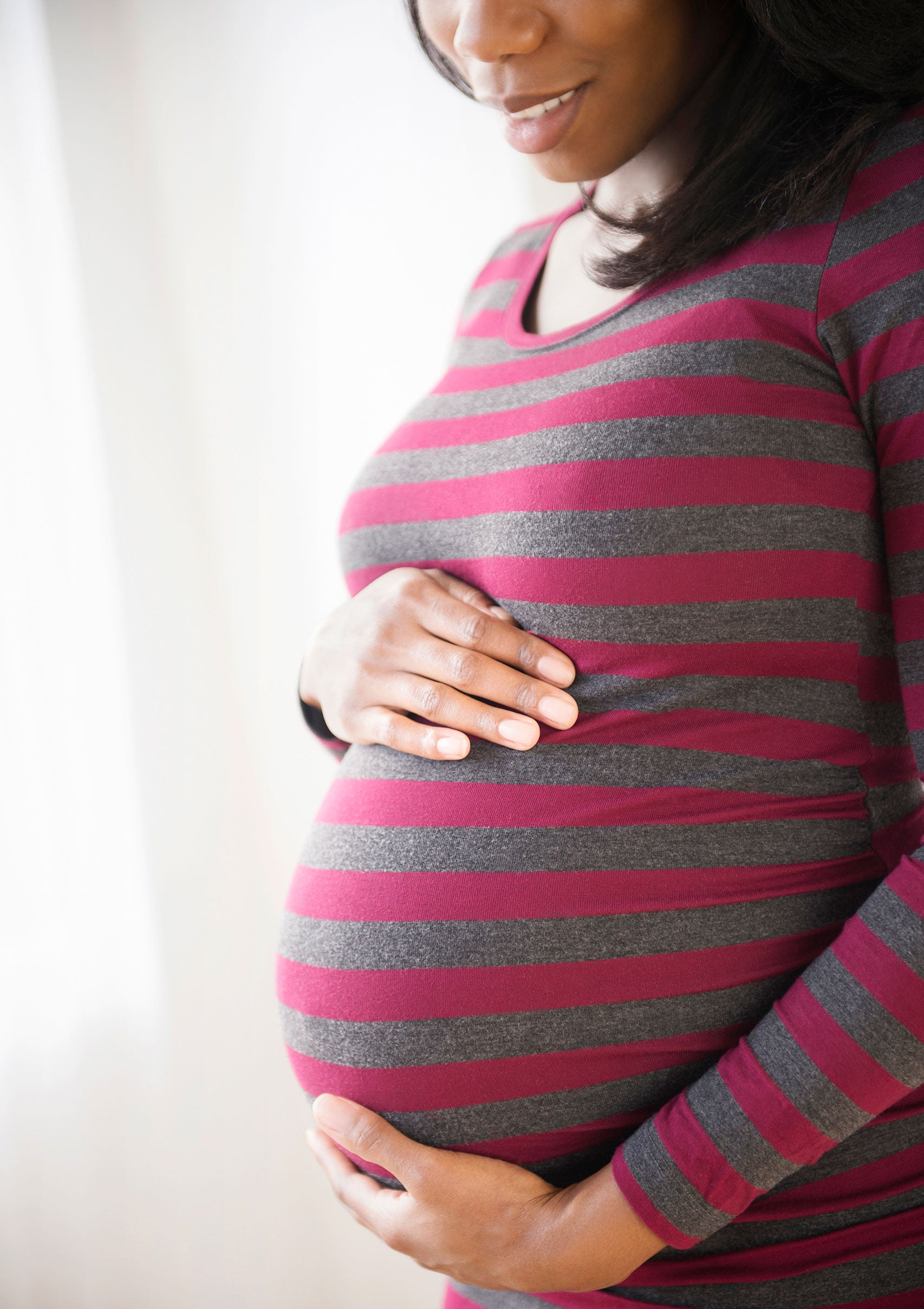
For expectant moms, the questions of what items to get and who to call for resources are ever growing. And today a new question is gaining traction: Should I consider hiring a doula? This professional provides continuous physical, emotional and spiritual support and information to a mother before, during and just after childbirth. Think of her as a prenatal and postpartum sisterfriend and coach. Not to be confused with a midwife—who is a trained, certified practitioner who can carry out many of the same services as a doctor—a doula (Greek for “female servant”) cannot administer medication or perform a cesarean delivery. The specialist is by your side to make sure the birthing process is as comfortable as possible.
Since 2001 Erykah Badu has served as a doula for more than 40 births and stays in touch with the babies she’s helped bring into the world and their mothers. While coaching women through labor, “Badoula” wears ankle bracelets. “I like for the baby to hear that. It’s a very welcoming frequency,” she told us last year.
A Mom-To-Be Talks to New Mom Melanie Fiona About Pregnancy and First Time Motherhood
Over the past several years, there has been an increase in the usage of doulas. According to Childbirth Connection, between July 2011 and June 2012, 6 percent of women used one compared with 3 percent in 2005. Doulas do not need a license, but many receive certification through organizations like DONA International (dona.org), one of the most respected networks of doulas. It has more than 6,000 members from around the world.
Women are increasingly bringing these professionals into their birthing rooms and hospitals for assistance. “Doula support has been proven to impact birth outcomes and families’ experiences across populations and cultures,” says Ravae S. M. Sinclair, J.D., intercultural director at DONA International. “Women of color are shown to experience tremendous birth outcome disparities no matter their economic and educational levels. Doulas can bridge the gap in maternal baby care in the U.S. and increase the likelihood of the mother and baby surviving and thriving during the pregnancy.” Sinclair also says the practitioners can reduce the excessive medical procedures that women of color have historically endured in the U.S. medical system.
Chanél L. Porchia-Albert founded the Brooklyn-based Ancient Song Doula Services and has assisted in more than 100 births. Since 2008 she has offered such services and prenatal classes; she also addresses health disparities in underserved communities, specifically in women of color, low-incomes families, teens and immigrant populations. “We realize that every aspect of our lives impacts how and when we birth our children,” Porchia-Albert says. “Everyone should feel empowered around their birthing options. A doula assists in an individual taking full autonomy over her body and experience; plus we can rub a back pretty damn good.”
The Girlfriends Guide to a Natural Childbirth
Lehna Huie, 28, used Porchia-Albert when she delivered her daughter in January 2015. “My partner and I started seeing her before my daughter was born. We established a relationship, and in a lot of ways Chanél became family,” says Huie. “When I was afraid during labor and delivery, she reminded me of my power. That really helped. She was my advocate. The relationship we built is sacred and something I’ll never forget.”
CONSIDERING A DOULA? HERE ARE A FEW THINGS YOU SHOULD KNOW:
• THE CARE
Doulas specialize in various techniques including giving massages, helping you switch positions during delivery, assisting in a bath birth and keeping you distracted from labor pain. Porchia-Albert goes to each delivery with a power pack consisting of herbal tinctures, homeopathy remedies specifically for childbirth and therapeutic essential oils—all to keep her moms as relaxed as possible and not thinking about the pain. If a C-section is needed or any problems arise during delivery, doulas can keep you calm and focused. They can also help you advocate for yourself in the birthing room if your doctor or midwife decides to deviate from your plan. These coaches also offer prenatal education and counseling, as well as guidance in breast-feeding, transitioning into parenthood and other postpartum needs.
• THE COMPATIBILITY
You don’t have to pick the first doula you meet with. Huie interviewed a handful before instantly clicking with and hiring Porchia-Albert. When looking for one of these specialists, make sure she is qualified and has your interests at heart. Definitely ask many questions, especially about her philosophy on birth and supporting women and their partners through birth.
• THE COSTS
In most states doulas are not typically covered by insurance or Medicaid, so you may have to come out of pocket to have one. “Fees vary greatly, based on many factors, including location, experience, education and professional affiliations,” explains Sinclair. “For instance, in a rural community, a doula might charge $500 to $800 per birth, whereas in a large city, one may charge from $2,000 to $3,000.” They can also charge based on their experience.
• THE CLINICAL STUDIES
Research has shown that the presence of a doula can not only reduce the need for a cesarean, but it can also lead to a shorter labor, fewer complications and the decrease of the need for labor-inducing drugs, epidurals or forceps.
To find a doula in your area, visit dona.org or try sunkissed doulas.com for a directory of African-American ones.